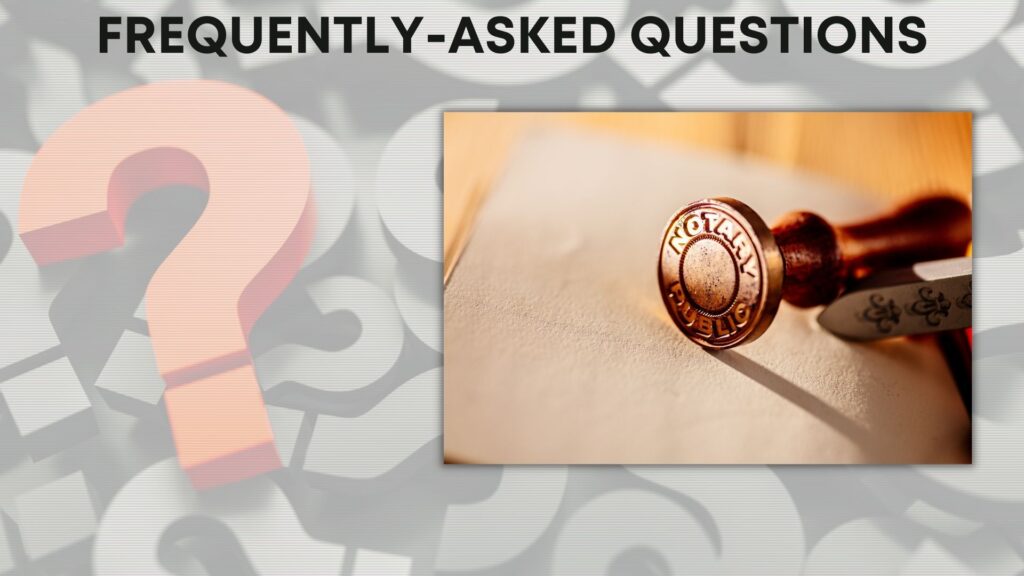Frequently asked questions:
Can you explain who qualifies as a witness?
In general, a witness must be over 18 years old and be of sound mind. A witness must not be under the influence of drugs and must not have any financial interests in the document.
What are Primary Photographic Identification Documents?
A notary pubic should see one of your IDs which is issued by the Government of Canada such as passport, citizenship card, permanent resident card, driver’s license, OHIP or two government issued non-photo identifications such as SIN card or birth certificate.
Should I bring my documents for True Certify Copy Stamps, or I can ask my family member to bring the document for you? Since a notary pubic should see the original document, just make sure the original document is brought to the office and it doesn’t matter if you can not bring it yourself.
To witness my signature, can I sign my form and ask my family member to bring it to you to notarize my signature?
No. Absolutely not. You shouldn’t sign the form in advance. It is the Notary’s job to identify your identification first, and witness your signing. Make sure your name on the form matches the name of your ID.
Can you notarize my property documents?
Yes, before you can do this, your lawyer must specify the spots to be signed and notarized and he/she provides any other instructions to the Notary. Please note a Notary can not provide you with any legal advice regarding your property’s documents. This is provided by your lawyer. The basis for notarization charges is one notarization fee for a combination of one signature plus one seal. The key element for the Notary to properly certify your signature on your property document is the lawyer’s proper instructions.
Can a Notary draft my will?
No, a Notary can not draft your will. It should be drafted either on your own or by a lawyer. A Notary just certifies your signature and those of your witnesses.

